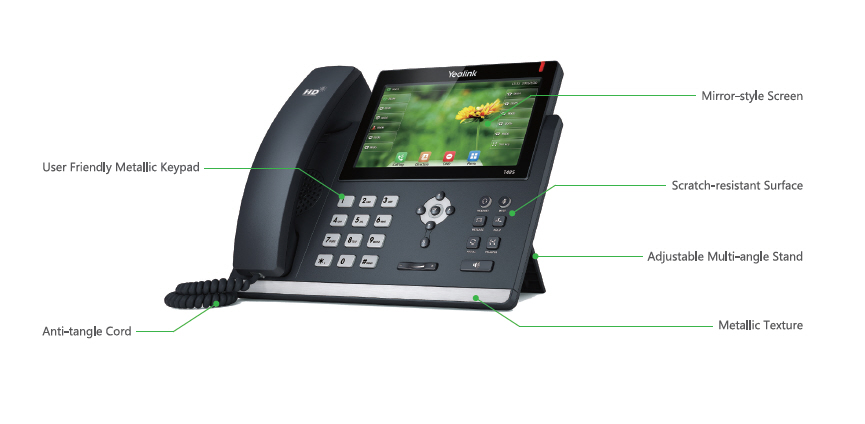Introduction
In today's fast-paced digital world, efficient communication is the backbone of any successful business. Traditional phone systems are slowly becoming a relic of the past, replaced by innovative solutions that meet the demands of modern communication. Enter Voice over Internet Protocol (VoIP) phone systems—a game-changing technology that allows users to make voice calls using the internet instead of conventional phone lines.
Whether you’re a small business owner looking to cut costs or an individual seeking better communication options, understanding VoIP is crucial. This article serves as The Beginner's Guide to VoIP Phone Systems: What You Need to Know, providing you with in-depth insights into what VoIP is, how it works, and its many benefits.
What is a VoIP Phone System?
Understanding VoIP Technology
At its core, a VoIP phone system converts your voice into digital signals and transmits them over the internet. Unlike traditional telephony that relies on circuit-switched networks, VoIP uses packet-switching technology, allowing multiple calls to share the same data channel.
How Does a VoIP Phone System Work?
The magic of a VoIP phone system lies in its ability to convert sound waves into data packets. Here’s how it works:
Voice Capture: When you speak into a VoIP phone, your voice is captured by a microphone. Digital Conversion: The analog sound waves are converted into digital signals. Packetization: These signals are then broken down into smaller packets for easier transmission. Transmission: The packets travel over the internet to reach their destination. Reconstruction: Upon arrival, the packets are reassembled and converted back into sound waves.Key Components of a VoIP Phone System
To operate effectively, a VoIP phone system typically consists of:
- VoIP Phones: These could be physical devices or softphones that run on computers or mobile devices. Internet Connection: A stable and robust internet connection is crucial for quality calls. VoIP Service Provider: Companies that offer calling plans and infrastructure support.
Benefits of Using a VoIP Phone System
Cost Efficiency
One of the primary reasons businesses switch to VoIP is cost savings. Traditional phone services often come with hefty installation fees and monthly charges. In contrast, VoIP systems can significantly reduce your telephone bills.
Scalability and Flexibility
VoIP systems are https://jeffreywbna779.bravesites.com/entries/general/How-to-Effectively-Allocate-Resources-When-Transitioning-to-a-VOiP-Platform highly scalable. As your business grows, adding new lines or features can often be done without additional hardware costs or complicated installations.
Advanced Features
A typical VoIP phone system offers features that enhance productivity:
- Call forwarding Video conferencing Voice mail-to-email Automated attendants
These features not only improve communication but also streamline workflow.
Types of VoIP Phone Systems
Hosted vs On-Premises Solutions
When diving deeper into how businesses implement their VoIP strategies, two primary types emerge:
Hosted VoIP: This cloud-based solution means your service provider handles everything from installation to maintenance. On-Premises VoIP: For businesses seeking greater control over their systems, an on-premises solution involves installing equipment within their premises.Choosing Between Hosted and On-Premises
When deciding between hosted and on-premises solutions consider factors such as:
- Initial investment Maintenance responsibilities Control preferences
Setting Up Your First VoIP Phone System
Required Equipment for Your New System
To set up your first VoIP Phone System, you will need:

Choosing Your Service Provider Wisely
Research various providers before making a decision. Look for aspects such as:
- Customer support Pricing plans Feature offerings
The Beginner's Guide to Selecting Your First VoIP Phone Model
Physical vs Softphone Options
Your choice boils down to whether you prefer physical phones or softphones:
Physical Phones: Offer higher call quality but require more investment upfront. Softphones: More flexible and easier to use; however, they depend entirely on device performance.VoIP Quality Considerations
Understanding Bandwidth Requirements
Quality call experiences rely heavily on bandwidth availability—generally 100 kbps per line for optimal performance.
Latency and Jitter Issues
Both latency (delay) and jitter (variation in packet arrival time) affect call quality significantly in VoIP Phone Systems.
Security Challenges in Using a VoIP Phone System
Common Security Risks
With great innovation comes potential risks; common threats include:
- Eavesdropping Denial-of-Service attacks
Best Practices for Securing Your Calls
Implementing strong passwords and encryption protocols can mitigate risks associated with using VoIP technology.
Integrating Other Communication Tools with Your VoIP System
Unified Communications Solutions
Combining various forms of communication—like video calls and messaging—creates an integrated environment enhancing collaboration.
FAQs about VoIP Phone Systems
What is required for using a VoIP phone system? To use a Voip Phone System, you'll need high-speed internet access, compatible hardware (either physical phones or softphone applications), and an account with a service provider. Is there any difference between residential and business voip? Yes! Business VOIPs often provide advanced features tailored for organizations like call centers while residential options focus more on basic calling capabilities. Can I keep my existing number when switching to voip? Most providers allow number porting so you may retain your current number while enjoying new services! Are voip calls really cheaper than traditional calls? Absolutely! Most users experience significant savings—especially long-distance callers—as they avoid per-minute charges associated with traditional services. Do I need special equipment for voip? Not necessarily! While having dedicated VOIPs may enhance call quality; any standard computer equipped online can function adequately through software applications! What's the main disadvantage of using voip? One major concern includes dependency upon stable power/internet sources which may interrupt service during outages unlike traditional telephony options unaffected by those issues!
Conclusion
As we wrap up this extensive dive into "The Beginner's Guide to VoIP Phone Systems: What You Need to Know," it becomes evident that transitioning from traditional telephony toward innovative solutions like VoIp represents not just an upgrade but rather evolution towards enhanced flexibility & cost-effectiveness whilst supporting modern demands upon organizational communications infrastructure!
By taking advantage of all these incredible features offered by various platforms today—one thing’s clear: investing time researching & understanding how best implement such advancements will pay off tremendously down road! So why wait? Get started exploring possibilities awaiting within realm exciting world known as VOIPs now!
